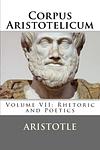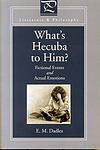The Greatest "Ancient Greece, Ancient Literature" Books of All Time
Click to learn how this list is calculated.
This list represents a comprehensive and trusted collection of the greatest books. Developed through a specialized algorithm, it brings together 300 'best of' book lists to form a definitive guide to the world's most acclaimed books. For those interested in how these books are chosen, additional details can be found on the rankings page.
Genres
Ancient Literature refers to the body of written works produced during the earliest periods of human history, typically up until the fall of the Roman Empire in the 5th century AD. This category encompasses a diverse array of texts, including religious scriptures, epic poetry, philosophical treatises, historical accounts, and dramatic plays, originating from various civilizations such as the Sumerians, Egyptians, Greeks, Romans, Chinese, and Indians, among others. Notable works within this genre include the "Epic of Gilgamesh," Homer's "Iliad" and "Odyssey," the plays of Sophocles and Euripides, the philosophical writings of Plato and Aristotle, the "Mahabharata" and "Ramayana" from India, and the foundational texts of Confucianism and Taoism in China. Ancient literature provides invaluable insights into the thoughts, beliefs, and cultural practices of early societies, and continues to influence modern storytelling, philosophy, and ethics.
Countries
Date Range
Reading Statistics
Click the button below to see how many of these books you've read!
Download
If you're interested in downloading this list as a CSV file for use in a spreadsheet application, you can easily do so by clicking the button below. Please note that to ensure a manageable file size and faster download, the CSV will include details for only the first 500 books.
Download-
1. The Republic by Plato
"The Republic" is a philosophical text that explores the concepts of justice, order, and character within the context of a just city-state and a just individual. It presents the idea of a utopian society ruled by philosopher-kings, who are the most wise and just. The dialogue also delves into theories of education, the nature of reality, and the role of the philosopher in society. It is a fundamental work in Western philosophy and political theory.
-
2. The Nicomachean Ethics by Aristotle
This philosophical work focuses on the concept of ethics, specifically virtue ethics, and how it relates to a person's character and happiness. The author argues that happiness is the highest good and the end goal of life, and that it is achieved not through pleasure, but through virtuous actions. The book also explores the nature of practical reasoning, the different kinds of virtues, the importance of friendship, and the role of luck in human welfare.
-
3. Corpus Aristotelicum by Aristotle
The "Corpus Aristotelicum" is a collection of texts by an ancient Greek philosopher, providing an extensive exploration of numerous fields of knowledge, such as metaphysics, ethics, logic, politics, biology, and poetry. These works have been instrumental in shaping Western philosophy and have had a profound influence on a wide range of subjects, including science, theology, and politics. The collection is known for its systematic and logical approach, and for its groundbreaking ideas that continue to stimulate intellectual discourse.
-
4. Poetics by Aristotle
This book is a seminal work of literary criticism that has profoundly influenced western thought. The book discusses the nature of poetry, tragedy, and comedy, as well as the components that make up a good story such as plot, character, thought, diction, melody, and spectacle. The author also introduces the concept of catharsis, the purging of emotions through the experience of art, and discusses the role of the tragic hero. The book is a must-read for anyone interested in literature, drama, or philosophy.
-
5. The Theogony by Hesiod
"The Theogony" is an ancient Greek epic poem that explores the genealogy of the gods. The narrative begins with the primordial deities Chaos, Gaia, and Eros, then progresses through the generations of Titans, Olympian gods, and mortal heroes. It provides an account of the struggles and power dynamics among these divine beings, culminating in the reign of Zeus as the king of the gods. The poem is a significant source of Greek mythology and offers insights into the ancient Greeks' worldview and their understanding of the universe's origins.
-
6. Works and Days by Hesiod
"Works and Days" is an ancient Greek epic poem that provides advice on life and farming. The author uses the myth of Prometheus and Pandora to explain why life is hard for humans, attributing it to Pandora's release of evils into the world. The work serves as a farmer's almanac, giving detailed advice on the best times to plant and harvest crops, and also provides moral guidance, emphasizing the importance of hard work, justice, and piety.
-
7. Fragments by Heraclitus
"Fragments" is a collection of philosophical musings and theories from an ancient Greek philosopher. The book explores a wide array of topics, including the nature of the universe, the human mind, and the relationship between the two. Often cryptic and paradoxical, the author's thoughts challenge traditional perceptions of reality and encourages readers to think deeply about their own existence and understanding of the world.
-
8. Alcestis by Euripides
"Alcestis" is a Greek tragedy that tells the story of a queen who voluntarily chooses to die in place of her husband, the king, when he is fated to die early. The king's friend, Heracles, visits them and, unaware of the queen's death, is offended that he is not being properly entertained. Upon learning the truth, he fights and defeats Death to bring the queen back to life, restoring happiness to the royal household. The play explores themes of love, sacrifice, death, and the power of friendship.
-
9. The Frogs by Aristophanes
"The Frogs" is a classic comedic play that delves into the world of Greek mythology and literature. The story follows the god Dionysus as he descends into the underworld with his slave Xanthias. Dionysus seeks to bring back the recently deceased tragedian Euripides to save the city from its cultural decline. However, upon arrival, he finds himself amidst a heated debate between Euripides and Aeschylus, another deceased playwright, over who is the greatest tragedian. A competition ensues, judged by Hades, leading to a series of humorous critiques of their plays and styles. The play is a satirical examination of Athenian society and the role of art and culture, filled with witty dialogue and commentary on the nature of theater.
-
10. Hecuba by Euripides
The tragedy centers on the sorrow and vengeance of a queen who has lost her city, her husband, and her children to war. After the fall of Troy, she becomes a slave to the Greeks and faces the ultimate horror of witnessing the sacrifice of her daughter and the brutal murder of her last surviving son. Her grief transforms into a dark quest for retribution, leading her to take justice into her own hands, which raises profound questions about morality and the limits of human suffering.
-
11. Memorabilia by Xenophon
"Memorabilia" is a collection of dialogues and personal reflections that capture the teachings and thoughts of the philosopher Socrates. Compiled by one of his disciples, the work defends Socrates against the accusations that led to his trial and execution, portraying him as a wise and ethical figure who sought to improve the lives of others through questioning and moral inquiry. Through various conversations with notable figures of his time, the text explores themes of justice, virtue, and the pursuit of good, providing a significant insight into Socratic philosophy and the intellectual milieu of ancient Athens.
-
12. Odes by Pindar
The book is a collection of ancient Greek lyric poetry that celebrates the achievements of athletes victorious in the early classical period's most prestigious sporting events, such as the Olympic, Pythian, Nemean, and Isthmian games. The poems are characterized by their formal structure, vivid imagery, and the blending of mythological references with the real-life feats of the athletes. The poet uses these odes not only to praise the victors but also to reflect on human nature, the divine, and the transient glory of athletic triumph, often offering moral and philosophical insights into the pursuit of excellence and the nature of success.
-
13. Cyclops by Euripides
"Cyclops" is a satyr play that blends elements of comedy and tragedy, drawing from the mythological encounter between Odysseus and the titular one-eyed giant. The narrative follows Odysseus and his men as they become trapped in the cave of the Cyclops, a savage and uncivilized creature. Employing wit and cunning, Odysseus devises a plan to intoxicate the monster with wine and blind him, securing an escape for himself and his crew. The play explores themes of intelligence versus brute force, the struggle for survival, and the clever triumph of human ingenuity over monstrous barbarism.
-
14. Moralia by Plutarch
"Moralia" is a collection of essays and dialogues that delve into various ethical, religious, physical, political, and literary topics, reflecting the author's profound interest in the moral issues of his time. The work is not a single coherent piece but rather an eclectic compilation of thoughts and inquiries, ranging from the proper behavior at a banquet to discussions on the nature of virtue and the influence of superstition. Through these texts, the author explores the conduct of daily life and the philosophical underpinnings of human actions, often drawing on historical examples and the wisdom of Greek and Roman thinkers to illustrate his points. The collection serves as a rich source of insight into the intellectual climate of the early Imperial period and the enduring questions of human morality.
-
15. Physics by Aristotle
"Physics" is a foundational text in the field of natural philosophy that explores the nature of the physical world and the principles underlying its behavior. The work delves into concepts such as change, causality, motion, and the infinite, providing a comprehensive framework for understanding the material universe. Through logical reasoning and empirical observation, the text examines the causes and principles of natural phenomena, offering insights into the dynamics of time, space, and matter. This treatise lays the groundwork for subsequent scientific inquiry and philosophical thought, influencing the development of Western science and philosophy.
-
16. Outlines of Pyrrhonism by Sextus Empiricus
"Outlines of Pyrrhonism" is a philosophical text that delves into the teachings of Pyrrho, a Greek philosopher known for his skepticism. The book explores the concept of skepticism as a pathway to "ataraxia" (tranquility), arguing that suspending judgment leads to a state of mental peace. It presents Pyrrhonism as a philosophy that encourages the suspension of judgment about the truth of beliefs in order to achieve this tranquility. The text also provides a detailed comparison of Pyrrhonism with other philosophical schools of thought, such as Stoicism and Epicureanism.
Reading Statistics
Click the button below to see how many of these books you've read!
Download
If you're interested in downloading this list as a CSV file for use in a spreadsheet application, you can easily do so by clicking the button below. Please note that to ensure a manageable file size and faster download, the CSV will include details for only the first 500 books.
Download














